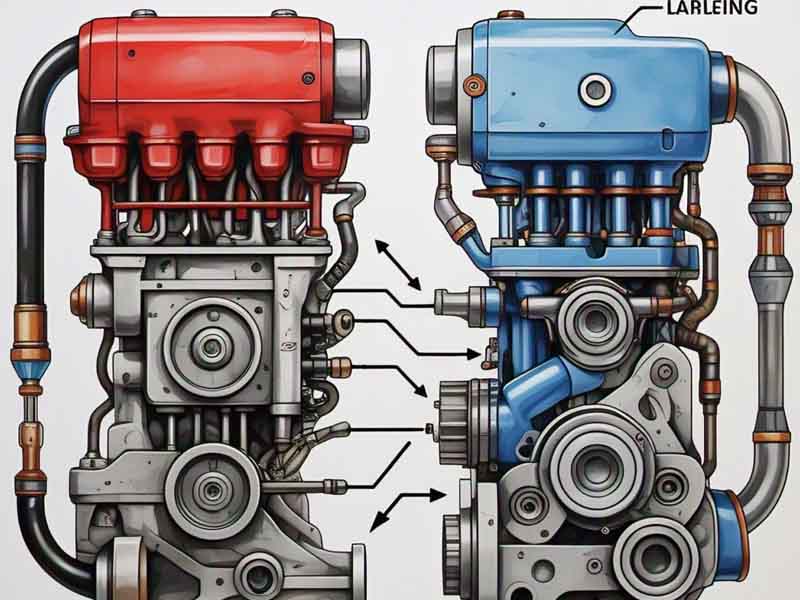
Dieselspecialists – Performance Comparison between gasoline and diesel engines often centers on power output and efficiency. Diesel engines are widely recognized for their ability to generate high torque at lower RPMs, making them ideal for heavy-duty applications. Torque, a crucial factor in tasks involving heavy loads, allows diesel engines to excel in trucks, ships, and construction equipment. Their superior fuel efficiency also gives them an edge in long-distance travel, as diesel fuel contains more energy per gallon than gasoline. However, gasoline engines offer higher horsepower and faster acceleration, making them preferable for lightweight vehicles and performance-oriented cars. Gasoline engines are also known for their quicker throttle response, which enhances the driving experience, especially in urban and high-speed highway conditions.
Gasoline engines have long dominated the automotive market due to their affordability and widespread availability. Vehicles powered by gasoline engines are generally cheaper upfront than diesel or electric alternatives, making them a popular choice among consumers. Additionally, gasoline-powered vehicles offer smoother operation with less engine noise and vibration, enhancing the driving experience. Diesel engines, on the other hand, are favored in commercial and industrial sectors, where durability and long-term cost savings outweigh the higher initial investment. Diesel vehicles also tend to have a longer lifespan and require less frequent maintenance, making them a practical choice for businesses and industries that rely on high mileage and heavy use.
“Alva One: Bold Electric Scooter with Powerful Performance”
The environmental impact of gasoline and diesel engines has become a critical factor in modern automotive development. Diesel engines produce more nitrogen oxides and particulate matter, contributing to air pollution. However, advancements in emission control technologies, such as diesel particulate filters and selective catalytic reduction. Have helped mitigate their environmental footprint. Gasoline engines, while cleaner in some respects, still contribute significantly to carbon emissions. As governments enforce stricter emission regulations, both engine types face competition from hybrid and electric alternatives. The future of automotive powertrains will likely see a shift toward more sustainable energy sources. But for now, the choice between gasoline and diesel remains dependent on specific needs and priorities. Manufacturers are continuously innovating to improve fuel efficiency and reduce emissions. Ensuring that both gasoline and diesel engines remain relevant even as the industry transitions towards greener solutions.
“Magic of Storytelling: World Storytelling Day”
Dieselspecialists - Ford Phases Out EcoBlue in a significant strategic pivot aimed at transforming its European portfolio. The company announced…
Dieselspecialists - Diesel Engines Ignite a new wave of admiration from engineers and drivers alike thanks to their powerful yet…
Dieselspecialists - Diesel Power Meets a new era of adventure as the off-road and heavy-duty accessories market continues to expand…
Dieselspecialists - LNG Truck Boom Drives a dramatic shift in China’s heavy-duty transportation sector as the country embraces liquefied natural…
Dieselspecialists - Diesel Engines Embrace a technological leap with the adoption of Variable Valve Timing (VVT), once considered the domain…
Dieselspecialists - Safety Recalls Go digital as automakers move to a new era of transparency and efficiency in protecting consumers.…